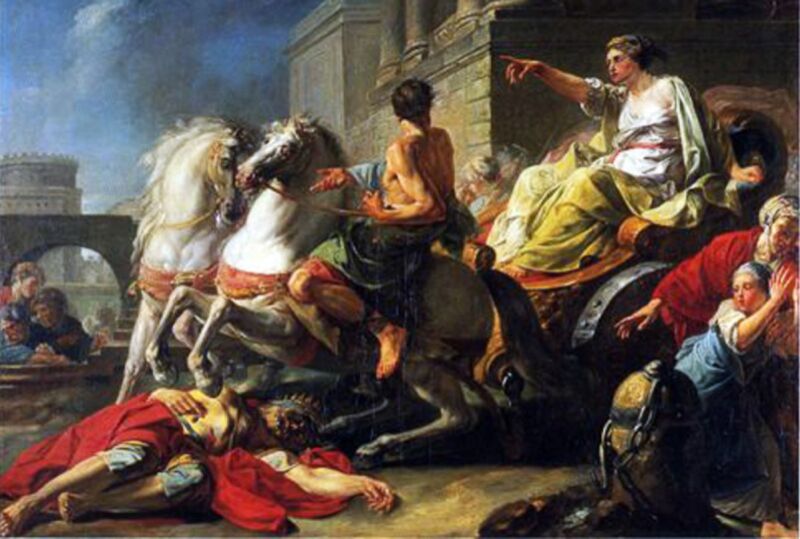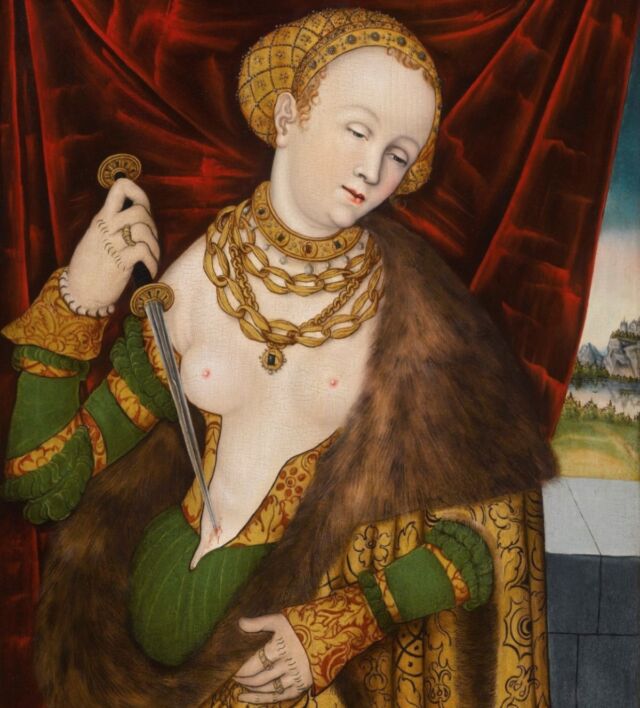
Public domain
Around 186 BCE, a former slave turned courtesan named Hispala Faecenia fell in love with a young upper-middle class Roman man named Publius Aebutius. Then she learned his mother and stepfather planned to have Aebutius initiated into the Mysteries of Bacchus, a religious cult that, legend holds, featured drunken orgies and frenzied women tearing young men limb from limb. Hispala objected strenuously, fearing her lover’s reputation would be ruined or he would be injured or killed. And she questioned the parents’ motives—with good reason. Apparently Aebutius’s mother had squandered the young man’s inheritance and he was about to come of age, thereby exposing her financial mismanagement.
Eventually the local consul got involved and set up an investigation into this Bacchanalian scandal, with Hispala reluctantly testifying about what she knew of the “obscene rites” from her younger days as a sex slave. Deeming it a religious conspiracy, the Senate issued a formal decree prohibiting the Bacchanalia throughout Italy—all because a lowly freedwoman wanted to protect her lover.
Chances are you’ve never heard Hispala’s story (she is only mentioned in Livy’s History of Rome), but historian Emma Southon is out to change that with her new book, A Rome of One’s Own: The Forgotten Women of the Roman Empire. Southon earned a PhD in ancient history from the University of Birmingham and is also the author of the wittily irreverent 2021 book, A Fatal Thing Happened on the Way to the Forum: Murder in Ancient Rome, discussing how the people of ancient Rome viewed life, death, and what it means to be human. She brings that same sensibility—combining solid scholarship with a breezy conversational tone—to her female-centric revisionist history of the Roman Empire.
A Rome of One’s Own chronologically presents the lives of Hispala and 20 other women, from Tarpeia and Hersilia (750 BCE) in the earliest foundational days, to “the political stab-fest of the late Republic,” all the way to Galla Placidia (414 CE) of late Antiquity. These women are not just queens and princesses, but also vestal virgins and whores, traitors and patriots, saintly martyrs, savvy businesswomen, informers, poets, and rebels. “By focusing on women, we discover a whole new history of the Roman Empire, one where marriage is as important as war and where what it is to be Roman is constantly being reassessed,” Southon writes. “Including women deepens our understanding of Roman history and Roman life.”
The topic of ancient Rome has been pretty good to Southon, and she has no plans to switch to a different historical period any time soon. She’s currently working on a children’s book about Britain during the Roman era, followed by another history book focused on the Roman court around the emperors rather than the rulers themselves.
“These were people who had absolutely no power but a lot of contact with the emperor, and we only see them in little glimpses,” Southon told Ars. “When you read the sources, you’ll find these brief anecdotes: ‘Augusta spent his evenings gambling with the boys he kept.’ And you’re like, ‘The what now?’ Emperors had pet dwarves and young boys that they kept around for no other reason than they liked them. Hadrian traveled with 5,000 people. Who were those 5,000 people and what were they doing?” Inquiring minds need to know.
Ars spoke with Southon to learn more.

Public domain

